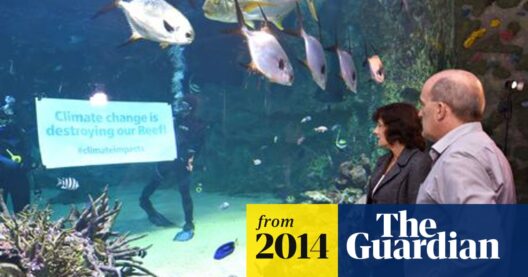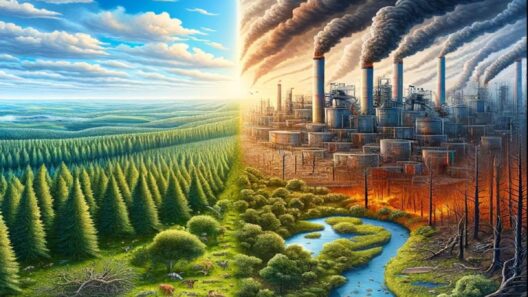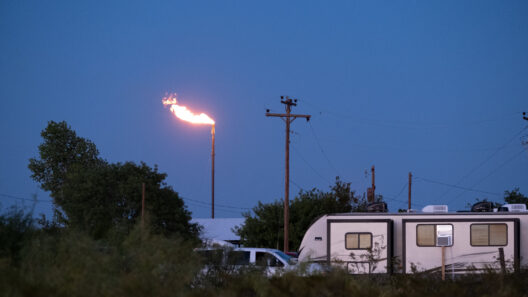Global warming is not merely a distant concern; it is an imminent reality that bears significant consequences for individuals and the environment alike. The phenomenon, primarily driven by the accumulation of greenhouse gases in the atmosphere, poses a plethora of challenges ranging from health risks to ecological degradation. Understanding the multifaceted repercussions of global warming can foster a more informed citizenry, capable of engaging in actionable solutions.
At its core, global warming results from the incessant burning of fossil fuels such as coal, oil, and natural gas. This combustion releases carbon dioxide (CO2) and other greenhouse gases, leading to a rise in Earth’s temperature. The implications stretch far and wide, affecting various aspects of life on the planet.
One of the most immediate threats posed by global warming revolves around public health. Rising temperatures have been linked to an increase in heatwaves, which can lead to severe heat-related illnesses. The elderly, children, and individuals with pre-existing health conditions are particularly vulnerable. Moreover, excessive heat exacerbates air quality, leading to respiratory issues driven by smog and other pollutants. Disease vectors, such as mosquitoes, are thriving in warmer climates, thus enhancing the transmission of vector-borne diseases like malaria and dengue fever.
Beyond health, global warming engenders a striking alteration in weather patterns. Prolonged droughts, intensified storms, and shifting rainfall patterns create precarious situations for food security. Agriculture, the backbone of human sustenance, is at the forefront of these changes. Crops that thrived in specific climatic conditions may struggle to survive, leading to diminished yields. This, in turn, causes food scarcity and escalates prices, which disproportionately affects low-income communities.
Furthermore, melting ice caps and glaciers spell disaster for coastal ecosystems. Scientists project that global sea levels could rise substantially by the end of the century, engulfing low-lying areas and rendering them uninhabitable. Coastal communities face not only the loss of property but also the erosion of cultural heritage and community identity. Innovative architectural solutions and urban redesigns are insufficient to shield vulnerable regions from the impending tide.
The loss of biodiversity is another critical outcome of global warming. As habitats shift or disappear, countless species find themselves unable to adapt quickly enough to survive. This extinction crisis has profound repercussions, affecting ecosystem services such as pollination, water purification, and even carbon sequestration. The interconnectedness of life on Earth is delicate; when one thread is pulled, the entire fabric risks unraveling, leading to unpredictable consequences in nature.
The repercussions of global warming are not isolated. They are intricately connected to social and economic systems. Vulnerable populations are often hit the hardest, exacerbating existing inequalities. Communities with limited resources may lack the resilience to recover from natural disasters, compounding poverty levels and destabilizing regions. Climate refugees—individuals compelled to leave their homes due to climate-related events—are becoming increasingly prevalent, straining urban areas not equipped to handle sudden demographic shifts.
In the pursuit of understanding, it is crucial to consider the psychological ramifications of global warming. The term “eco-anxiety” has emerged, reflecting the distress many individuals experience concerning the planet’s future. Feeling helpless in the face of overwhelming data and reports can lead to a sense of hopelessness, making proactive engagement seem futile. Fostering a sense of agency, through community involvement and grassroots initiatives, can alleviate such anxieties by redirecting energy toward constructive action.
To mitigate the impacts of global warming, an epistemological shift is needed. Education plays a fundamental role, as a knowledgeable citizenry is essential for demanding robust policy changes and making sustainable choices. Understanding the science behind climate change empowers individuals to advocate for renewable energy sources, such as solar and wind power, which significantly reduce dependency on fossil fuels.
Moreover, adopting sustainable practices in daily life can cultivate a culture of environmental stewardship. Simple actions, such as reducing energy consumption, opting for public transportation, and advocating for policy changes at local and national levels, contribute to a collective movement aimed at combatting climate change. Community engagement in reforestation projects and local agricultural initiatives fosters resilience while nurturing a more robust local economy.
The promise of addressing global warming also rests within technological innovation. Advancements in carbon capture and storage, along with alternative energy technologies, hold the potential to dramatically reduce greenhouse gas emissions. The transition to a low-carbon economy is not merely desirable but essential for sustainable development. Transitioning toward a circular economy—where waste is minimized, and resources are reused—also presents a paradigm shift that redefines consumption and production patterns.
Finally, addressing climate change necessitates international cooperation. Climate does not adhere to national borders; thus, a collaborative approach is vital. Global agreements aimed at reducing emissions and supporting developing nations in adopting sustainable practices are crucial for the effectiveness of climate action. The world must collectively work toward binding commitments that ensure a sustainable future for generations to come.
In conclusion, global warming presents profound threats to both individual lives and the broader environment. The importance of understanding its impacts cannot be overstated; proactive engagement, informed decision-making, and collaborative efforts are essential in addressing this multifaceted crisis. By reconsidering our relationship with the planet and actively participating in solutions, society can pave the way for a healthier, more sustainable world. The time to act is now. The consequences of inaction are dire, but through collective effort, it is within the realm of possibility to alter our trajectory and foster a sustainable future for all.








